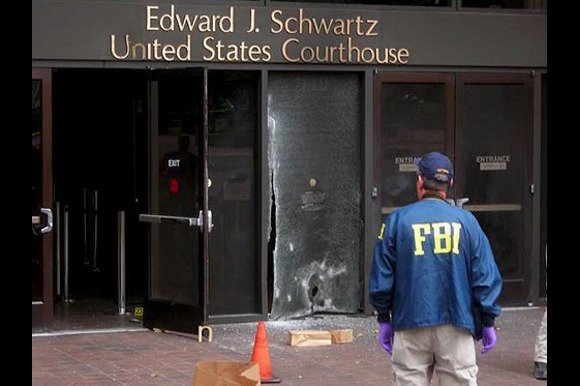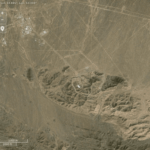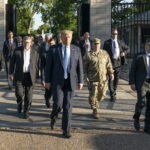Officials across the United States are on heightened alert following the recent US airstrikes on nuclear facilities in Iran, with federal agencies coordinating closely with local authorities to monitor potential threats. While no specific or credible threat has yet emerged, the Department of Homeland Security (DHS) and the FBI have been actively engaging with state governors and law enforcement across the country to emphasize the elevated threat environment.
Sources told CBS, the BBC’s US partner, that the FBI has reassigned agents previously focused on immigration-related cases back to counter-terrorism efforts. The move underscores growing concerns over possible retaliatory activity in the wake of the strikes, despite Iran having issued no direct threats against the US homeland and the presence of a temporary ceasefire between Iran and Israel.
In the days immediately following the Iranian strikes, US immigration authorities arrested 11 Iranian nationals. Among them were individuals with alleged connections to Iran’s military and paramilitary proxy groups. Though there is no indication that the arrested individuals were planning or linked to a specific plot on US soil, DHS confirmed that there are currently no credible threats to the American public.
US Immigration and Customs Enforcement (ICE) stated that the arrests are in line with former President Donald Trump’s immigration enforcement agenda, particularly targeting undocumented immigrants. Among those detained, one man in Minnesota was reportedly a former member of Iran’s Islamic Revolutionary Guard Corps (IRGC) and admitted to having connections with Hezbollah. Another man, arrested in Mississippi after living in the US for eight years, was allegedly classified by US authorities as a known or suspected terrorist. In Alabama, officials apprehended a man who allegedly served as a sniper for Iran’s military until 2024.
The arrests coincided with weekend security briefings between federal agencies and hundreds of law enforcement officials across the US. These meetings aimed to ensure vigilant monitoring and proactive outreach, particularly to potentially at-risk communities such as the Jewish population. The stepped-up engagement reflects a broader trend of increased security coordination, reminiscent of post-9/11 practices.
In recent days, several Republican lawmakers and former Trump administration officials have raised concerns over alleged Iranian “sleeper cells” that they claim entered the country under President Joe Biden’s administration. While no public threat from Iran has been issued, experts note the country’s history of orchestrating or attempting violent operations on US soil.
Dr. Lorenzo Vidino, director of the George Washington University Program on Extremism, pointed to Iran’s long-standing pattern of using proxies and covert operations. He cited examples such as the 1980 assassination of an Iranian dissident in Maryland and more recent alleged plots to assassinate US officials, including former President Trump and former National Security Adviser John Bolton. While many individuals with Iranian ties arrested in the US have been charged with sanctions violations, Vidino notes that some arrests may have ideological or intelligence-related motivations.
According to Vidino, the men recently arrested were likely already under surveillance but were detained preemptively due to the recent escalation between Washington and Tehran. In past incidents, Iranian nationals have been arrested while allegedly scouting possible attack targets within the US.
The National Terrorism Advisory System recently issued a separate bulletin warning of a “heightened threat environment in the United States.” Though no direct threats were cited, the bulletin encouraged vigilance, especially in the face of potential low-level cyberattacks against US infrastructure.
Heightened coordination between federal and local authorities has become standard practice since the September 11, 2001 terrorist attacks. National security conversations have intensified following mass violence events or global conflicts involving the US.
In response to recent developments, local police departments across the country have increased patrols around sites considered vulnerable, such as Jewish institutions and facilities linked to the US and Israeli governments. The FBI has reportedly issued internal guidance to its field offices to refocus efforts on identifying and disrupting potential terrorist activity.
While the agency has declined to confirm changes in operational priorities, it issued a general statement saying: “The FBI does not comment on specific operational adjustments or personnel decisions. However, we continuously assess and realign our resources to respond to the most pressing threats to our national security and to ensure the safety of the American people.”






